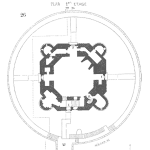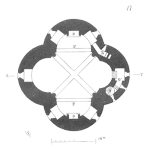With industry statistics like the one from a joint study by the Wall Street Journal and Emerson, it’s no wonder that more manufacturers are looking for ways to proactively handle unplanned machine downtime. Among several issues discussed, the study states that unplanned downtime costs manufacturers about $50 billion per year. Furthermore, it mentions that outdated maintenance programs waste resources and potentially expose staff to higher safety risks.
on Maintenance Reliability
A listing in reverse chronological order of these article series:
- Usman Mustafa Syed — Aasan Asset Management series
- Arun Gowtham — AI & Predictive Maintenance series
- Miguel Pengel — Asset Management in the Mining Industry series
- Bryan Christiansen — CMMS and Reliability series
- James Reyes-Picknell — Conscious Asset series
- Alex Williams — EAM & CMMS series
- Nancy Regan — Everday RCM series
- Karl Burnett — History of Maintenance Management series
- Mike Sondalini — Life Cycle Asset Management series
- James Kovacevic — Maintenance and Reliability series
- Mike Sondalini — Maintenance Management series
- Mike Sondalini — Plant Maintenance series
- Andrew Kelleher — Process Plant Reliability Engineering series
- George Williams and Joe Anderson — The ReliabilityXperience series
- Doug Plucknette — RCM Blitz series
- Robert Kalwarowsky — Rob's Reliability Project series
- Gina Tabasso — The Intelligent Transformer Blog series
- Tor Idhammar — The People Side of Maintenance series
- André-Michel Ferrari — The Reliability Mindset series
Preventive Maintenance Software Essential Functions

Preventive maintenance software can provide a number of benefits for organizations. From increasing labor productivity to extending equipment life, these benefits can significantly impact a company’s bottom line. However, outcomes of preventive maintenance software largely depend on the software program selected. Consider these essential functions when selecting preventive maintenance software:
Streamline Scheduled Maintenance
At the heart of any computerized maintenance management system (CMMS) is the ability to schedule preventive maintenance tasks. Since preventive maintenance is essentially planning ahead, a CMMS should allow you to create a maintenance schedule for each piece of equipment. Within each schedule, a complete set of required inspections and manufacturer’s guidelines should be adhered to. Comprehensive maintenance schedules help ensure all equipment operates in peak condition and helps prevent unplanned repairs.
The Conscious Asset Framework – 1

Building a successful and sustained asset management program
Part 1 – setting up the framework
By: James Reyes-Picknell & Uri Wittenberg. Many companies struggle with improvement efforts of all sorts. The ISO standards on Asset Management have sparked a great deal of interest that goes beyond just the maintenance and engineering communities.
CFOs understand the potential benefits of good asset care and good life cycle asset decisions – they want the financial performance, improved revenues from dependable production capacity, reductions in CAPEX and OPEX from higher reliability, increased standardization and design for maintainability as well as operability. [Read more…]
3 Benefits to Using AI in Reliability

Last week, I appeared on the “Ask the Experts” panel webinar with my friends at UpKeep – you can listen to the recording here. The first question to the panel was about the advantages and disadvantages of using AI for predictive maintenance. [Read more…]
Three Questions to Ask on Your Next Preventive Maintenance Optimization (PMO)

Regular preventive maintenance (PM) makes up a large portion of many maintenance programs and, sometimes, we don’t get the results we want out of all that maintenance. Reliability professionals should evaluate their PMs to ensure effectiveness both from a reliability & cost perspective. [Read more…]
New Technologies but Old Operating Context

With the growing trend of Internet of Things (IoT), Artificial Intelligence (AI) and Data Science in Industrial Asset Management domain; I just wonder whether the Plant Engineers will still be keeping tab on the ‘Operating Context’ of their assets to extract real value from these revolutionary technologies or will just rush like lemmings to adopt them. [Read more…]
Reporting is King of CMMS

The ability to make smarter asset management decisions is one of the main benefits of implementing computerized maintenance management software (CMMS). And the driving forces behind that ability are the reporting and dashboard features. Data mining is arguably the most important CMMS feature of all—it’s certainly a feature you should assess carefully when comparing software options. The CMMS reporting feature helps organizations accomplish the following:
Identify Trends & Weaknesses
Tracking key performance indicators (KPIs), or quantifiable metrics that reflect performance, allows maintenance managers to measure success. Mean Time Between Failure (MTBF) is a common KPI reported on within CMMS software. It reflects the amount of time lapsed between occurrences of asset failure, enabling maintenance staff to pinpoint problem assets. For example, a low MTBF for a specific piece of equipment could indicate there’s an underlying issue. Reporting KPI measurements such as these help maintenance managers spot potential trends leading to equipment breakdown and lags in production.
Progression Not Perfection

Over the last month, I’ve hired a coach to help me improve so I can improve and, more importantly, be happier. In one of my latest sessions, my coach said the goal for every day is “progression not perfection”. The concept being that perfection is unattainable and if we judge ourselves on perfection, we’re always going to be unhappy. [Read more…]
Reliability Centered Maintenance – It’s not just about maintenance!

How two, back-to-back debacles with my face cream and eye cream highlight one of the strengths of Reliability Centered Maintenance (RCM) – and it has nothing to do with maintenance! Watch as I explain from my bathroom floor… [Read more…]
Embracing Randomness

“You get pseudo-order when you seek order; you only get a measure of order and control when you embrace randomness.” Nassim Nicholas Taleb
Are you embracing randomness? There’s a misconception that once you determine a failure mode is random that your reliability work is over. That’s not the case, you’re just starting. [Read more…]
RCM is NOT just for aircraft!

What types of equipment can you apply Reliability Centered Maintenance (RCM) to? (Hint: It’s NOT just for aircraft!) Watch to find out what Nowlan and Heap, the original architects of RCM, say about it! [Read more…]
The Connection Between CMMS And FMEA
Equipment failure is a reality that cuts across every industry. And when it occurs, its impact can vary from minimal inconveniences with localized damages that are easily contained and repaired, to significant incidents with damaging effects on the environment accompanied by several health and safety implications.
How Leaders Should Act in Times of Uncertainty

Let’s accept this with no uncertainty. We are living in times of extreme uncertainty. Be it the global politics or economics; our lives are clouded with a lot of uncertainty. Many economies & businesses around the world are stunned as to how to predict & plan for the future. Just see at the different predictions on oil prices made by renowned traders & analysts during last two years. Everyone seems to be so off-target. [Read more…]
Importance of CMMS Naming Conventions

When using a computerized maintenance management system (CMMS), proper naming conventions are important to its success. Although it may take time in the upfront planning phase to define IDs for assets, parts, resources, maintenance procedures, etc., the outcome will be well worth the extra effort. Appropriate CMMS naming conventions provide a streamlined process for easily finding information and reporting.
While a state of the art CMMS system provides extensive query capability by most data fields, it still makes sense to think about and craft proper naming standards. Your CMMS vendor should be able to provide recommendations that have stood the test of time and worked well for their customers. Most important to the success of a streamlined and efficient system is to document your organization’s conventions in the maintenance standard operating procedures (SOPs) and provide proper training on the SOPs, along with the software training provided by your CMMS vendor. Once users know the established standards and how to use their CMMS system, finding needed information is a snap.
The Importance of Asset Management Education

Guest post by Suzane Greeman, ASQ-CMQ/OE, CAMA, CAMP, CMRP
It is certainly is refreshing to see that asset management education is on the uptake. Three points come to mind as I thought about asset management education for asset-dependent companies: [Read more…]
 Ask a question or send along a comment.
Please login to view and use the contact form.
Ask a question or send along a comment.
Please login to view and use the contact form.